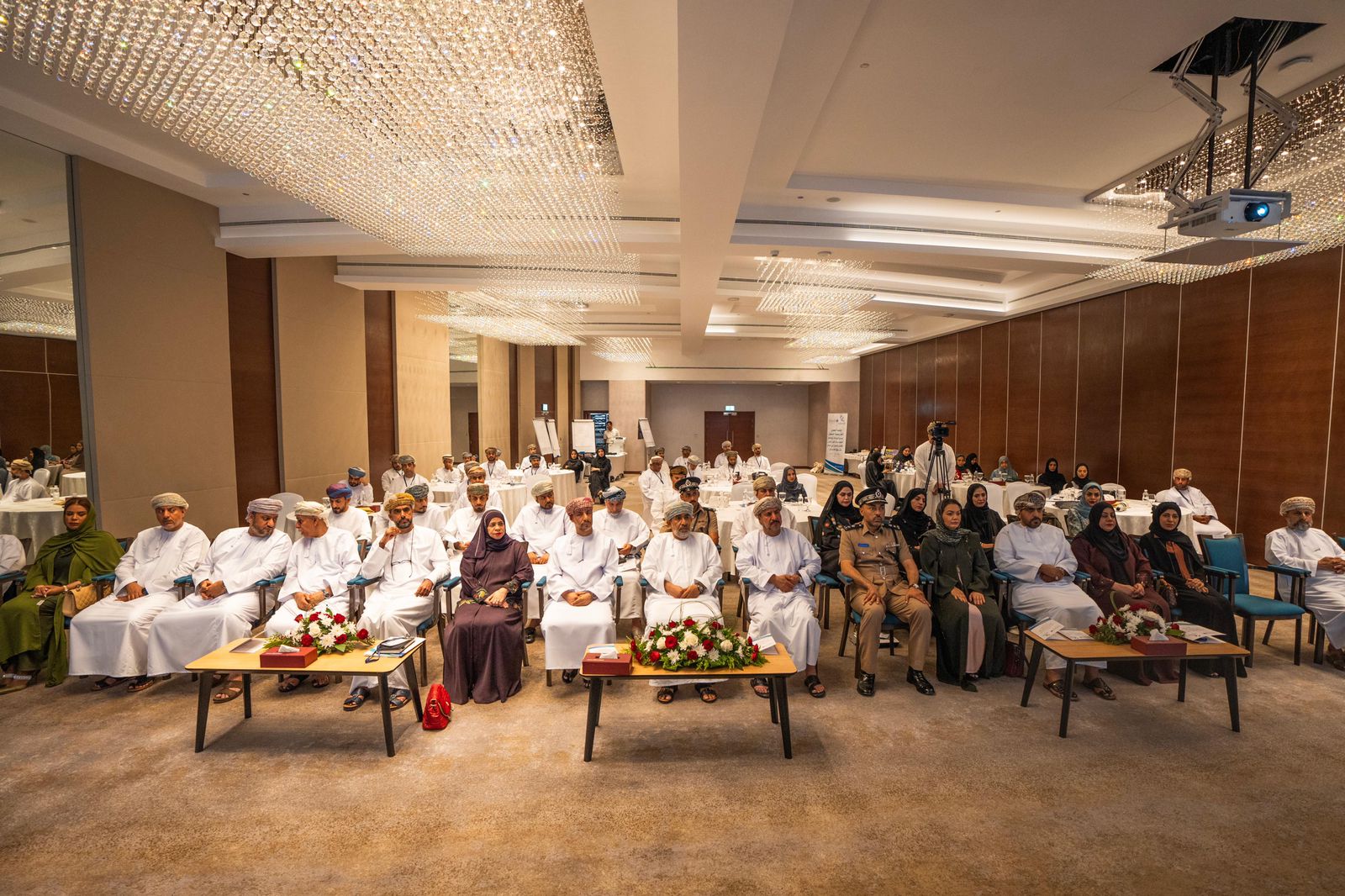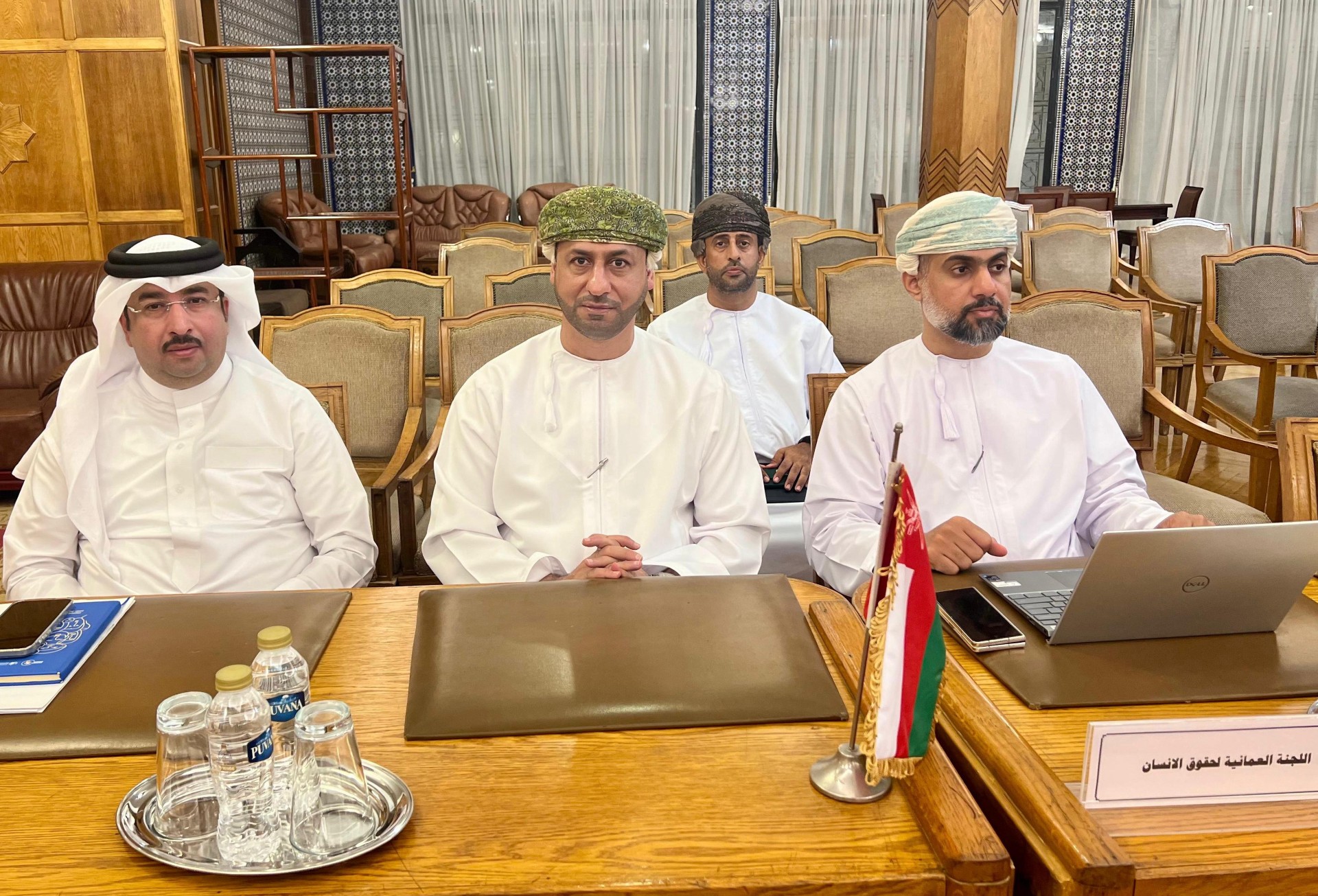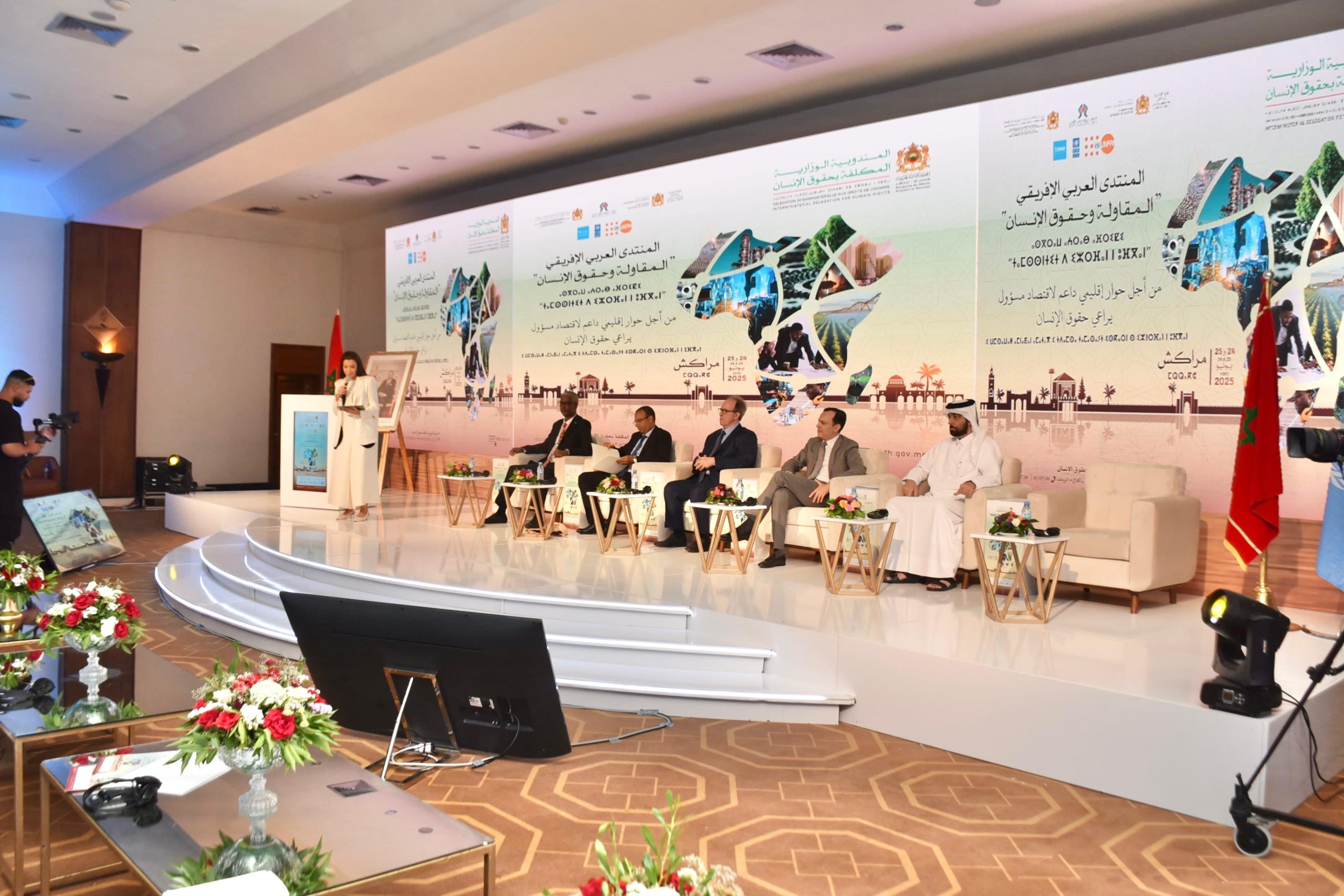

In his speech during the opening of the training workshop, Professor Rashid bin Hamad Al Balushi, Chairperson of the Oman Human Rights Commission, said that the OHRC is holding this training course within the framework of implementing its terms of reference contained in its system issued by Royal Decree No. (57/2022); The OHRC has several specialties, including cooperation with international mechanisms related to human rights, preparing reports and participating in meetings related to human rights at the regional or international level, organizing conferences, courses and seminars related to human rights in coordination with the competent authorities, and providing advice to the relevant authorities in the country in Issues related to human rights and freedoms.
The Chairperson of the OHRC added that this course aimed at continuing the awareness and educational programs organized by the OHRC within a wide range of initiatives and programs that the OHRC seeks to offer to several segments of society in order to implement the goals of (Oman Vision 2040). Those initiatives and programs seek to achieve the strategic goal represented in a society whose members are responsible, aware of their rights, committed to their duties and proud of their national identity.
Furthermore, the Chairperson of the OHRC pointed out that representatives of civil society organizations are taking part in this training workshop side by side with representatives of government authorities and institutions to promote the participants’ understanding of the human rights-based data approach and indexes used to measure progress achieved in the field of human rights, in addition to applying the guidelines and the methodology of collecting information and data to obtain indexes and extracting and identifying indexes, And consequently using indexes effectively to measure and evaluate human rights at the national level.
For her part, Ishraq Bin Al-Zein, Deputy Director of the United Nations Human Rights Training and Documentation Center for Southwest Asia and the Arab Region, said: Organizing this workshop comes within the framework of the United Nations Training Center’s role of strengthening the capabilities of countries and all stakeholders, including national human rights institutions in the Arab region to fulfill its obligations in the field of human rights by submitting reports to various UN mechanisms and bodies at the specified times, and in a manner consistent with the relevant guidelines. The UN Human Rights Office of the High Commissioner has developed a framework of indexes aimed at promoting human rights, formulating policies, evaluating impact and achieving transparency, due to the use and analysis of indexes and the adoption of a human rights-based approach to data collection contribute to measuring progress achieved in the field of human rights on the ground. Indexes are also considered essential for the implementation of international standards and obligations in the field of human rights.
She also emphasized the cooperation of the UN Human Rights High Commissioner with national human rights institutions to provide the necessary support and assistance in preparing quantitative and qualitative indexes to measure the progress made in implementing international human rights standards and principles.
The training workshop aims to enhance participants’ understanding of the human rights-based data approach and the implementation of indexes to measure progress in implementing and realizing human rights, in addition to applying the guidelines for implementing indexes, adopting a human rights-based data approach, applying the methodology for collecting information and data to obtain indexes, extracting and identifying indexes, and using and applying indexes to measure and evaluate human rights at the national level and implementing indexes when preparing and writing national, regional and international reports in the field of human rights. It will also include a theoretical part, represented by some presentations, and a practical part, including practical exercises, work groups, and the presentation of some practical examples of indexes related to human rights, so that participants can apply the principles of collecting data, extracting and identifying indicators, and benefiting from them when preparing and writing relevant national, regional, and international reports. With human rights.




